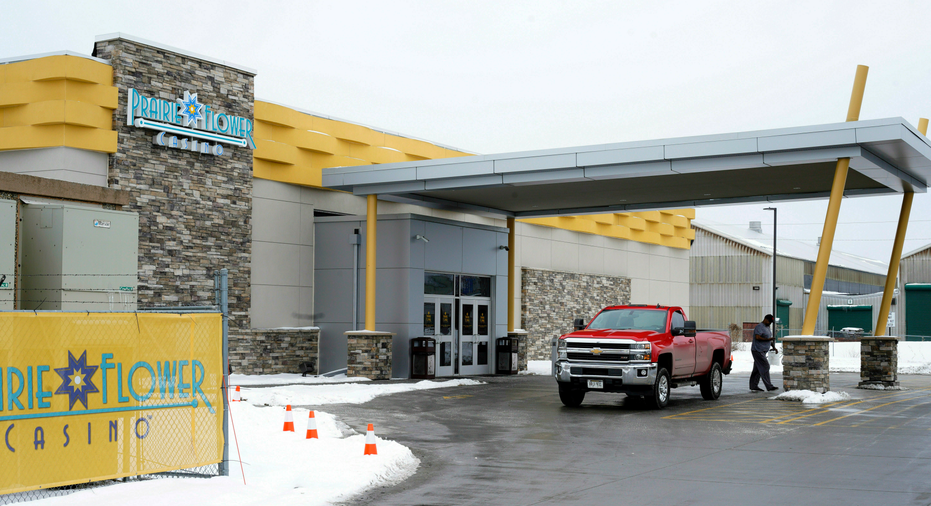Ponca Tribe scores win in fight to keep Iowa casino open

OMAHA, Neb. – The Ponca Tribe of Nebraska has secured another win in its fight with Iowa and Nebraska to keep its newly opened casino in western Iowa.
The National Indian Gaming Commission issued yet another ruling in favor of the tribe, saying on Wednesday that the tribe has the right to operate the Prairie Flower Casino on land it acquired in Carter Lake, Iowa.
The $10 million Prairie Flower opened in November with 200 slot-style machines after the federal commission initially approved the tribe's casino license in 2017, some 10 years after the tribe began its effort to open the casino.
While the casino is technically in Iowa, it lies on the western side of the Missouri River and is surrounded by Omaha. The neighboring city of Council Bluffs, Iowa — which already hosts three state-licensed casinos — and the states of Iowa and Nebraska sued to try to shut it down, with opponents in Iowa fearing it will siphon off gambling tax revenue and opponents in Nebraska fearing the casino could draw crime to Omaha.
Unlike most other tribal casinos, the Prairie Flower wasn't built on a reservation. The Ponca Tribe, which was forced to leave its homeland along the Missouri River in Nebraska by the U.S. government in the 1870s, has no reservation. The U.S. government terminated the tribe in the 1960s and took its remaining land as part of a policy that sought to abolish reservations and assimilate Native Americans into mainstream American society. The tribe regained its federal recognition in 1990, and most of its 4,500 members are spread over 15 counties in Iowa, Nebraska and South Dakota.
The lawsuit faults the federal commission's decision to license the Prairie Flower, saying the tribe misrepresented its intentions when it initially announced plans for a health center on the Carter Lake lot. In March, a federal judge overseeing the lawsuit ordered the commission to analyze whether that agreement should alter the commission's 2017 conclusion that the Carter Lake lot constitutes restored tribal lands that are eligible under federal law for tribal casinos.
The commission's decision Wednesday confirmed that the agreement did not change its 2017 finding.
"Since the parcel is within the aboriginal territory of the tribe and the tribe possesses modern connections to it, based on the geographic factor alone, the parcel is restored lands," the commission said.
The Iowa attorney general's office said Thursday that it is reviewing the ruling and "considering our next steps." Dick Wade, an attorney representing Council Bluffs, said the city intends to continue with the lawsuit to try to shut the Ponca casino down, but acknowledged that Wednesday's ruling "has complicated things" for the plaintiffs.
Nebraska Attorney General Doug Peterson had harsh words for the commission Thursday, saying the federal group's decision was reached with no input from the involved parties and that it wrongly disregarded the tribe's initial stated intentions to use the land for a health clinic. Peterson called on the U.S. Department of Interior and others at the federal level to review the work and governance of the commission.
"Ultimately, this issue will be decided by the federal courts," Peterson said.
James Meggesto, an attorney for the tribe, believes there's little to debate in light of the commission's reaffirmation upholding the casino.
"The decision effectively ends the legal battle in district court," he said.



















